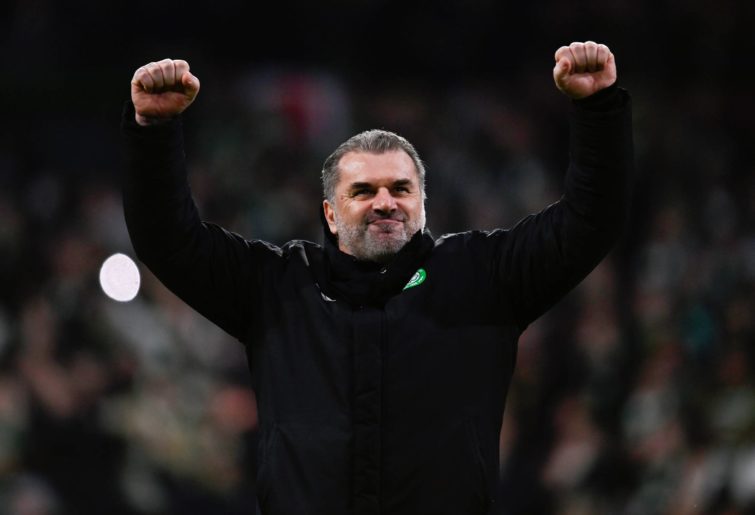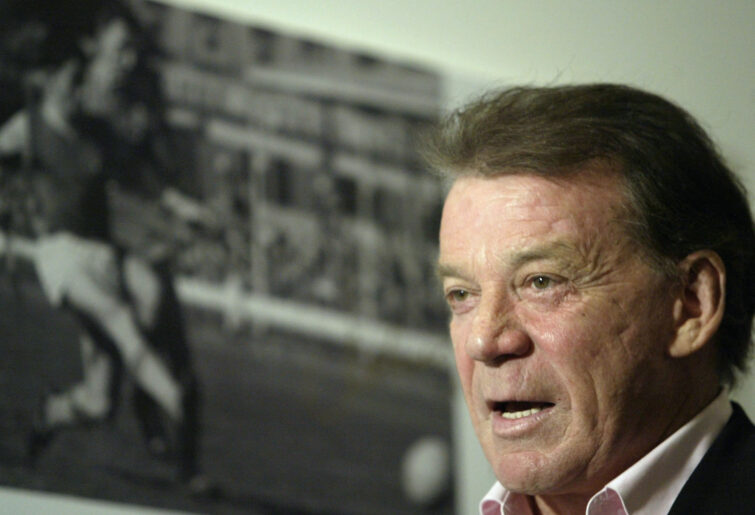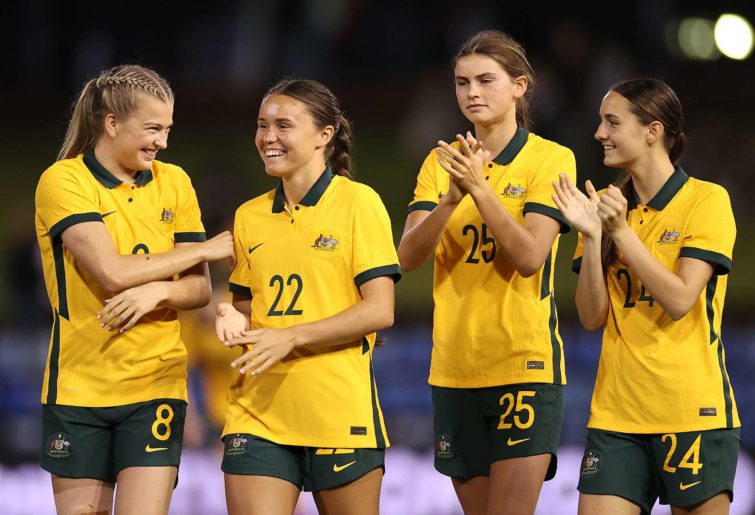Johnny Warren’s legacy as a bureaucratic warrior for football may been forgotten, but his legacy lives on in ways we can still see today.
20 years ago, the then-Premier of NSW Bob Carr published a report of a government taskforce set up to explore how to best promote and develop football talent in NSW. Johnny was the “Premier’s Special Advisor” and his passion for the game shines through in that report.
With the benefit of hindsight, the Report of the NSW Premier’s Soccer Taskforce makes for fascinating reading as it provides a reminder of how great our sport’s challenges have been in the past, and that we have actually overcome more challenges than we tend to remember.
The Report was commissioned immediately after the 2002 World Cup in Japan and Korea. Johnny and his bureaucrats interviewed a wide swathe of football coaches, players and administrators (including then National Youth Coach, Ange Postecoglou) to identify recommendations that would enhance football in the state.
The frustration felt by both the football figures and NSW Government ministers sympathetic to football was clear. Why wasn’t Australia at the 2002 World Cup?
It was held in our own timezone and had a massive impact on public love for the game. What could the NSW Government do to accelerate Australia’s football development and engage with the Asia through football?

(Photo by Rob Casey/SNS Group via Getty Images)
Well it turns out there’s a lot that could have be done, and we’ve since achieved most of it.
For starters, football in NSW has grown considerably – adding 100,000 extra winter club players to its ranks. That increase is the equivalent of the contemporary rugby league community in NSW.
Back in 2002, Football NSW (then divided into the NSW Soccer Federation and the NSW Amateur Soccer Federation) had 153,000 members and Northern NSW Football (at the time known as Northern NSW Soccer Federation) had 41,000 members for a total of 194,000 club players across the state.
These days the two federations, along with the Canberra-based Capital Football now have 311,000 club players. This is comfortably the biggest nursery of any sport anywhere in the country.
But even with big numbers, was football organised well enough for the football community?
Recommendation 1: Football, not soccer
The Report’s first substantive recommendation was simple, and unambiguously inspired by Johnny himself: call the sport football.
“Football is the sport of the world. It is the sport of the people of the world”. Done. “Soccer” as a word exists still exists as a legacy within the community, but we have officially moved on from that, even if other sports want us to regress.
Recommendation 2: Establish a NSW Football Foundation
This was to be a vehicle for benevolent investment and charitable grants into community football. Unfortunately, it doesn’t exit and it would be great to have something like that (Hint hint, Frank Lowy).
Recommendation 3: Regionalise NSW into 15 football clusters
A bureaucratic, organisational recommendation which has largely played out with the country regions now operating under consolidated FNSW Branches or NNSWF Zones.
Metro associations haven’t been consolidated, but given how enormous most have grown it would now be prohibitively inefficient to get Northern Suburbs to merge with Manly Warringah, for instance.

Australian football legend Johnny Warren in 2003 (Photo by Chris McGrath/Getty Images)
Recommendation 4: Appoint a Technical Director
It’s interesting to think that there wasn’t a NSW TD 20 years ago, because they are the norm now. The problem of course being that they have too little power to make necessary changes to enhance the quality of football, and nor do we currently have a full-time dedicated national TD. A bigger problem than not having the state equivalent.
Recommendation 5: Annualise a calendar of Special events and Tournaments
Johnny’s idea was to have a regular drumbeat of Olyroos, Socceroos, Matildas games in NSW, as well as minor events like beach soccer and Footvolley tournaments. We’ve actually achieved an even higher tempo of international games stemming from Australia’s shift into Asia.
And let’s not forget that Australia hosted the 2015 Asian Cup, and will host the 2023 Women’s World Cup, and the 2032 Olympics. Johnny would be stoked with how much international football we now host.
Recommendation 6: NSW to support a national professional competition
The competition needed to be commercially viable, visible, resource and of high quality. This was a dig at the NSL, and fortunately came true. The A-League, even in its worst years has been far stronger than the NSL was back in 2002.
Recommendation 7: Increase the Promotion and opportunities for Women and Girls
It’s a little embarrassing to read how low the expectations for women’s football was back in 2002. Specific recommendations touched on recruitment into state-based youth, referee and coaching programs, as well as campaigning for the national squad to receive financial assistance for training in the lead up to the World Cup and Olympics.
We actually take those things for granted now, especially because the Matildas have won such public respect that they now generate self-supporting revenue for Football Australia. And Australia will host the 2023 World Cup. We should do more for women’s football, but we’ve come a long way in 20 years.

The modern day Matildas are standing on the shoulders of giants. (Photo by Cameron Spencer/Getty Images)
Recommendation 8: Establish a school of Football Business
This is one of the best ideas that has not been heard of since 2002. Johnny recognised that there is a need to formalise a course of study that specifically trains administrators to organise and drive football, from both the business and sporting sides.
I can think of a few A-league executives in need of such education. I’d like to see this in place one day.
Recommendation 9: Establish a Football School of High performance
There isn’t a great deal of context for this recommendation, but it looks like Johnny was recommending a NSW-specific version of the Australian Institute of Sport’s football program that existed at the time.
We have moved on from that highly centralised model of football development and now have more academies run by the A-League clubs, as well as improved, but far from perfect pathways through the NPL.
Recommendation 10: Increased integration of Futsal and appoint a Futsal technical director
In the Report, Johnny makes clear how much he loves the Brazilian way of football, and how much futsal has helped develop their high skill levels and football IQ. Unfortunately, this is a mixed report card for us in 2022. In NSW, futsal is now mostly independent of the Football Australia system.
I recently counted 77 separate futsal and indoor soccer centres in Sydney that are not affiliated to FNSW. That’s a lot of footballers playing outside the official system. But on the plus side, futsal is growing rapidly as a summer offering of FA-affiliated clubs and associations right across the state. Long may that continue.
And finally, as the 11th recommendation NSW was to formally adopt football as a promotional tool for diplomacy and trade. I don’t think we do enough of this at the national level yet.
There’s a lot of potential here, especially across Asia.
Although it was a NSW-centric look at the sport in 2002, it was a good reminder of what our Johnny thought needed to happen to make football great. Some things leave a lot to be desired still, but it’s worth reminding ourselves of how much has actually been achieved over the last 20 years.
I think we can be even more ambitious for 2042!
































































































